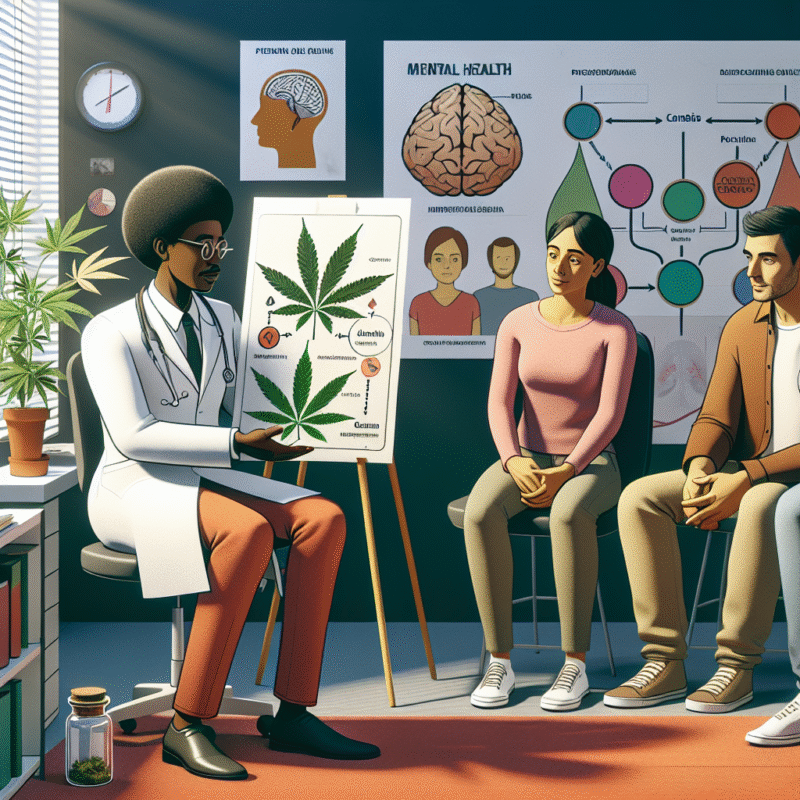The Role of Cannabis in Mental Health: Insights from Patients and Professionals
In recent years, the conversation around cannabis has evolved significantly, particularly concerning its potential role in mental health treatment. As states and countries continue to legalize medical and recreational cannabis, its implications for mental health have garnered attention from both patients and professionals alike. This article explores insights from diverse perspectives on how cannabis may influence mental health outcomes.
Understanding Cannabis and Its Components
Cannabis contains numerous compounds, with cannabinoids like tetrahydrocannabinol (THC) and cannabidiol (CBD) being the most researched. THC is psychoactive and is often associated with the ‘high’ effect, while CBD is non-psychoactive and has been touted for its therapeutic properties without the euphoric effects. This distinction is crucial, as different formulations may yield various impacts on mental health.
Patient Perspectives: Seeking Relief
Many patients have turned to cannabis as an alternative to traditional pharmaceuticals for managing mental health conditions such as anxiety, depression, and PTSD. Patients report a spectrum of experiences—from significant relief from symptoms to concerns over dependency or exacerbation of issues.
Positive Anecdotal Evidence
For numerous individuals, cannabis has provided immediate relief from anxiety and panic attacks, making it a sought-after option when traditional medications failed or produced undesirable side effects. One patient explained, "Cannabis helps to ground me when anxiety becomes overwhelming. It calms my mind without the foggy feeling I got from prescription medications."
The Double-Edged Sword
However, not all experiences are positive. Some patients report that, while cannabis can alleviate symptoms, it sometimes leads to increased anxiety or paranoia, particularly with higher THC strains. This has led to significant variance in patient experiences and highlights the need for personalized approaches to cannabis treatment.
Professional Insights: A Complex Landscape
Mental health professionals are increasingly acknowledging the potential benefits of cannabis, but they also emphasize the importance of caution and regulation.
Research Backing
Emerging research indicates that CBD may have anxiolytic (anxiety-reducing) and antidepressant effects. Studies have shown promise for cannabis in reducing symptoms of PTSD, particularly in helping patients process trauma. Dr. Sarah Long, a psychiatrist specializing in trauma treatment, notes, "While we still require more rigorous studies, the initial findings are promising. CBD could potentially provide a safe avenue for those who have not found relief elsewhere."
Cautions and Concerns
Despite the potential benefits, many professionals urge caution. Dr. Mark Jenkins, a clinical psychologist, highlights the risk of self-medication and the varying quality of cannabis products on the market. "Without standardization or regulation, patients may end up using products that sit at the intersection of efficacy and potential harm, especially with unregulated THC levels."
Integrative Approaches
Many professionals advocate for an integrative approach to treatment, where cannabis may serve as one component in a broader mental health strategy. This may include therapy, lifestyle changes, and other medicative interventions. Professionals emphasize the necessity of personalized treatment plans tailored to individual patient needs and conditions.
The Future of Cannabis in Mental Health
Ongoing research and discussions about cannabis’ efficacy and safety in mental health treatment highlight the complexity of this emerging landscape. Regulatory frameworks are slowly adapting, but there’s a monumental need for further studies to illuminate the long-term effects and optimal usage of cannabis in mental health therapy.
The Need for Education and Awareness
Both patients and practitioners express a desire for more education surrounding cannabis use in mental health. Establishing clear guidelines, safety protocols, and robust educational resources will be essential for responsible use and to maximize therapeutic benefits.
Conclusion
The role of cannabis in mental health is a multifaceted issue that warrants careful consideration from both patients and professionals. As the landscape continues to shift, understanding the individual responses to cannabis—paired with research-backed practices—will be vital in shaping effective mental health strategies for the future. Broader conversations, fueled by personal experiences and scientific inquiry, will pave the way for a more nuanced understanding of cannabis as a therapeutic agent.

